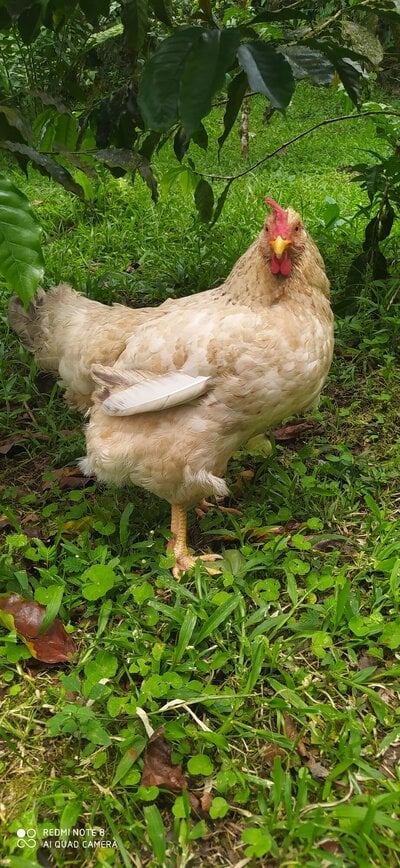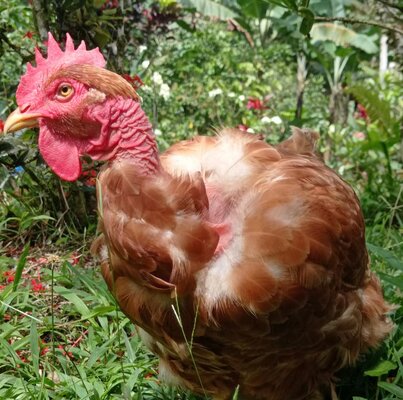TropicalChickies
Crowing
Hi everyone. My sweet 2.5 year old hen Butchie has been having vent gleet and crop issues on and off for the past seven months. She started off by getting very sick (pooping greenish water, not eating or moving) but has responded to care and improved little by little since then. I've been diligent about keeping her free of worms and parasites. I'm pretty certain she has a chronic yeast infection by her smell (cheesy) and the white plaque on the roof of her mouth. She also has flaky skin on her face, but cleaning it with iodine solution and dabbing with ketocozonal cream has helped that tremendously. I've tried micozonale and Clotrimazol, but she responded best to a careful dosing of acidified copper sulfate. After almost two months of near normal healthy chicken life, she had a bad sour crop episode five days ago. I did all the things that worked before-- fasted her for a day, flushed her with Epsom salts, and started her on ACS in her water, following with probiotics. She seems to be bouncing back and her crop has been clear the past two mornings.
My question is should I try to find another feed for her? She can eat boiled eggs no problem. A little well cooked rice doesn't set her off either. But when she eats chicken feed (I only give her 2TBSP and damp it), her crop gets big and mushy and feels full of liquid and/or gas. When I massage it, she occasionally burps and I get a whiff of yeasty smell.
I've referred to this great article often https://www.backyardchickens.com/ar...ntion-and-treatments-of-crop-disorders.67194/
And in it, @TwoCrows writes that switching feed can sometimes help chronic sour crop. The feed the hens eat is a pretty typical mash. The ingredients say wheat, barley, corn, oats, soy meal, sunflower meal, sunflower oil, vitamins and minerals.
Maybe she is gluten intolerant?
Seriously, though, every time I think it's over for this hen, she bounces back. When she's feeling good, she is happy and active, bossing the pullets around, sun bathing, and seems glad to be alive. So I'd like to help her feel better any way I can. As many of the BYC friends have pointed out, maybe she has an underlying issue. But maybe it's the feed...
Any recommendations for a sweet hen with a sensitive tummy (who also thinks she's a dog)?
Thank you!

My question is should I try to find another feed for her? She can eat boiled eggs no problem. A little well cooked rice doesn't set her off either. But when she eats chicken feed (I only give her 2TBSP and damp it), her crop gets big and mushy and feels full of liquid and/or gas. When I massage it, she occasionally burps and I get a whiff of yeasty smell.
I've referred to this great article often https://www.backyardchickens.com/ar...ntion-and-treatments-of-crop-disorders.67194/
And in it, @TwoCrows writes that switching feed can sometimes help chronic sour crop. The feed the hens eat is a pretty typical mash. The ingredients say wheat, barley, corn, oats, soy meal, sunflower meal, sunflower oil, vitamins and minerals.
Maybe she is gluten intolerant?
Seriously, though, every time I think it's over for this hen, she bounces back. When she's feeling good, she is happy and active, bossing the pullets around, sun bathing, and seems glad to be alive. So I'd like to help her feel better any way I can. As many of the BYC friends have pointed out, maybe she has an underlying issue. But maybe it's the feed...
Any recommendations for a sweet hen with a sensitive tummy (who also thinks she's a dog)?
Thank you!








